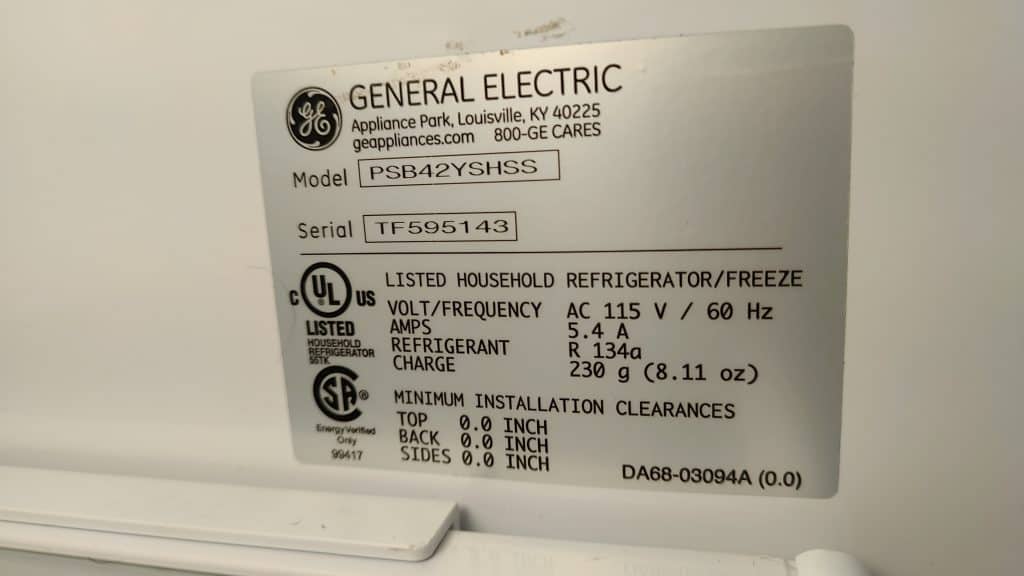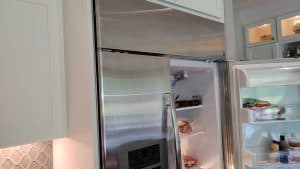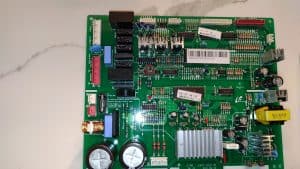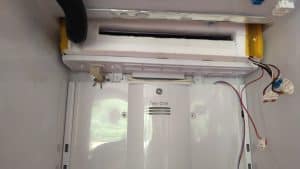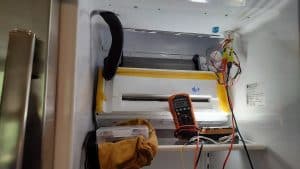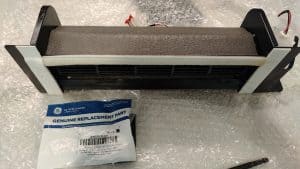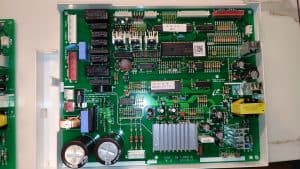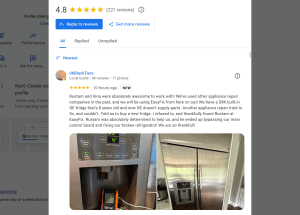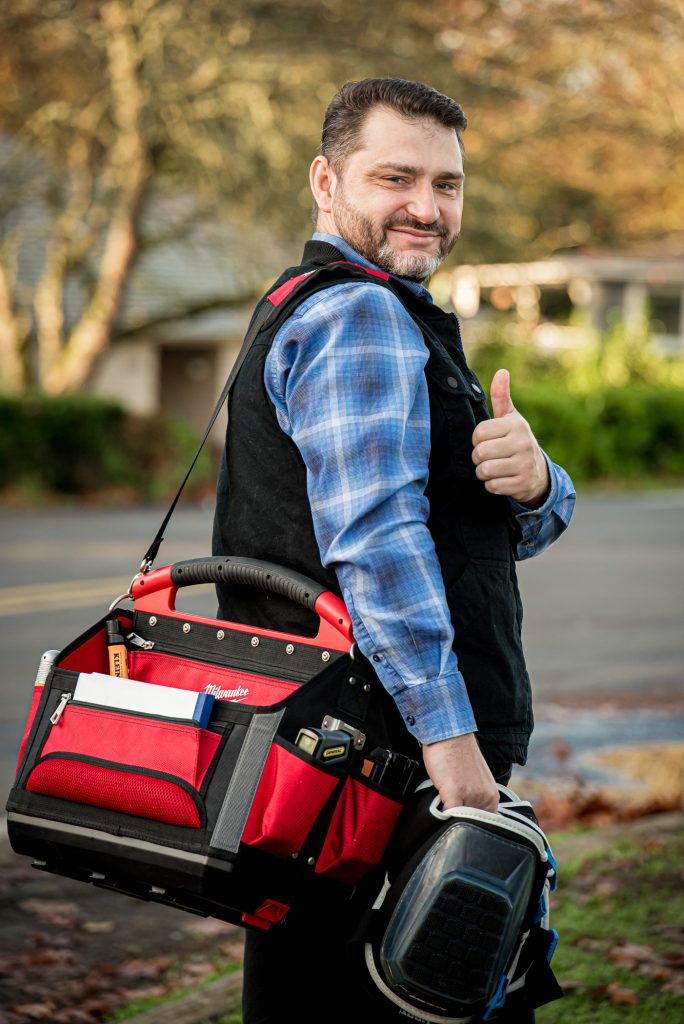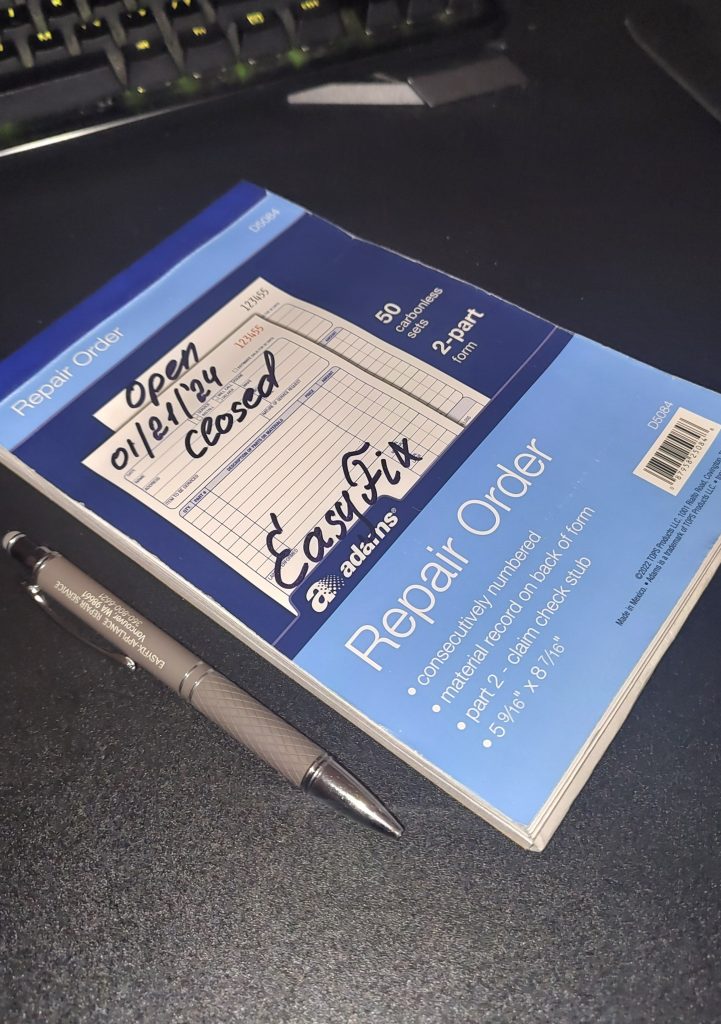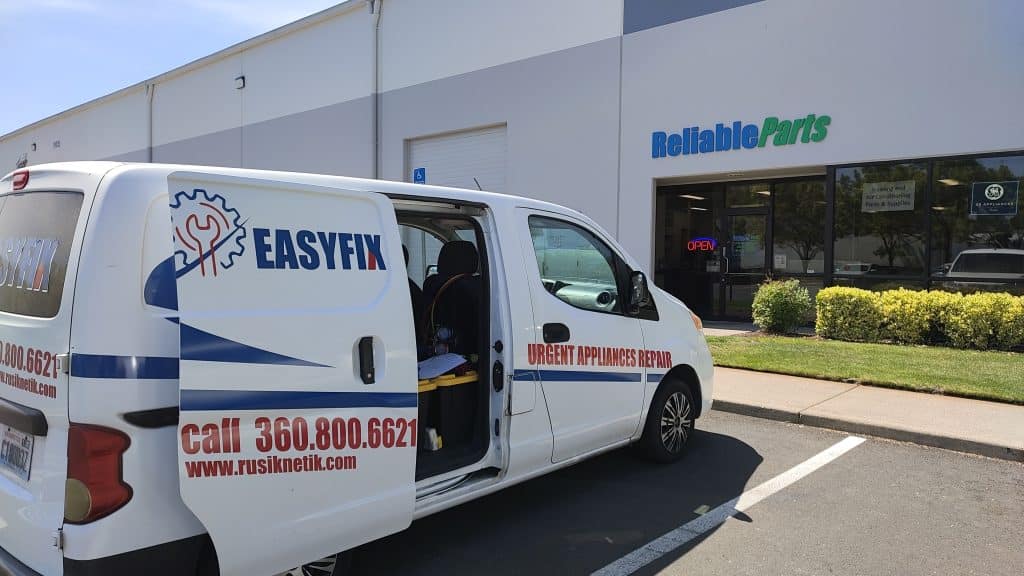What looked like an impossible case became one of the most memorable repairs we’ve ever done in Ridgefield. This story is about full troubleshooting, service manuals, reverse engineering – and most importantly, patience and trust from our returning client, Trevor S.
From Failed GE Repairs to EasyFix
Trevor had worked with us before. But when his high-end built-in GE refrigerator failed, he called another appliance repair company first. They tried. They failed. And they told him:
“It can’t be repaired. You need a new refrigerator.”
Instead, Trevor called EasyFix. Normally, we avoid touching appliances after failed repair attempts by others. But this was a returning customer. That changed everything.
Challenge 1: GE no longer supplies OEM parts for this refrigerator.
Day One: The “Old” Control Board That Wasn’t
Trevor showed us what the previous technician called the “old board”. But as soon as I looked at it, I knew something was wrong:
QR code. Newer generation chip. This wasn’t an “old” board at all. Either the board was never changed, or the “old” one was reinstalled after the failed attempt.
The Symptoms: Why This GE Refrigerator Failed
- Fridge compartment not cooling.
- Freezer working perfectly.
First clue? Samsung connectors inside the GE refrigerator. Strange? Not really – most brands share parts behind the scenes. But it meant something.
Next clue: the evaporator fan motor. Three wires. We applied voltage directly – nothing. The motor was dead. No airflow means no cooling.
But that wasn’t all. The temperature readings on the display were wrong. Why? The previous tech had replaced the temperature sensor… with a standard GE sensor. Problem? This GE refrigerator had a Samsung control architecture. It needed a Samsung temperature sensor, not GE.
First Attempt – And First Failure
The repair plan seemed simple:
- Swap the control board (the “new” board from eBay).
- Replace the evaporator fan motor (OEM Samsung).
- Replace the temperature sensor (OEM Samsung).
Power up.
Failure.
Now, the condenser fan motor wasn’t working. We replaced the motor. Another failure. The control board couldn’t detect the new motor, even though the motor tested fine on its own.
Reason? The eBay board was defective – unable to recognize the motor.
Second Attempt: Direct Power via Compressor – And Another Failure
New idea: bypass the control board and power the condenser fan directly from the compressor – like in simpler refrigerators.
We bought an adapter, accessed the compressor terminals, looked for phase and neutral, and… surprise. Failure again. This wasn’t a standard compressor. It was actually an inverter-linear compressor.
Direct wiring? Impossible.
The Final Puzzle: Samsung Engineering Hidden Inside a GE
At this stage, we faced the core question:
How do you run a condenser fan in a system where the inverter board controls both the compressor and the fan, yet can’t detect the fan due to a defective board?
We analyzed the main control board. Samsung architecture.
Solution? Simulate a running fan using feedback signals.
One port. Two independent circuits. This created the return signal the board was expecting.
Feedback voltage: CN2 pins 3 and 1 – 2.4V DC.
The board “believed” the fan was running.
The refrigerator powered up.
The compressor started.
The fridge cooled.
Victory.
One of the Hardest Appliance Repairs in Ridgefield
This case had everything:
- Incorrect repairs by another company.
- No available OEM GE parts.
- Samsung internals hidden inside a GE refrigerator.
- Dead fan motors, defective control boards, inverter-driven systems.
What saved this appliance?
Patience. Real diagnostics. Field experience. And Trevor’s trust.
At EasyFix, we don’t give up.
OEM parts or not, GE or Samsung – we’ll find a way.
📍 Serving Ridgefield, Vancouver, Portland & Nearby
Learn more about our work:
- 🔗 Appliance Repair in Ridgefield WA
- 🔗 Refrigerator Repair Services
- 🔗 GE Appliance Repair Services
- 🔗 Samsung Appliance Repair Services
Note: Photos are limited. We focused on solving the problem, not documenting it for social media. After all, we’re repair techs – not bloggers.
